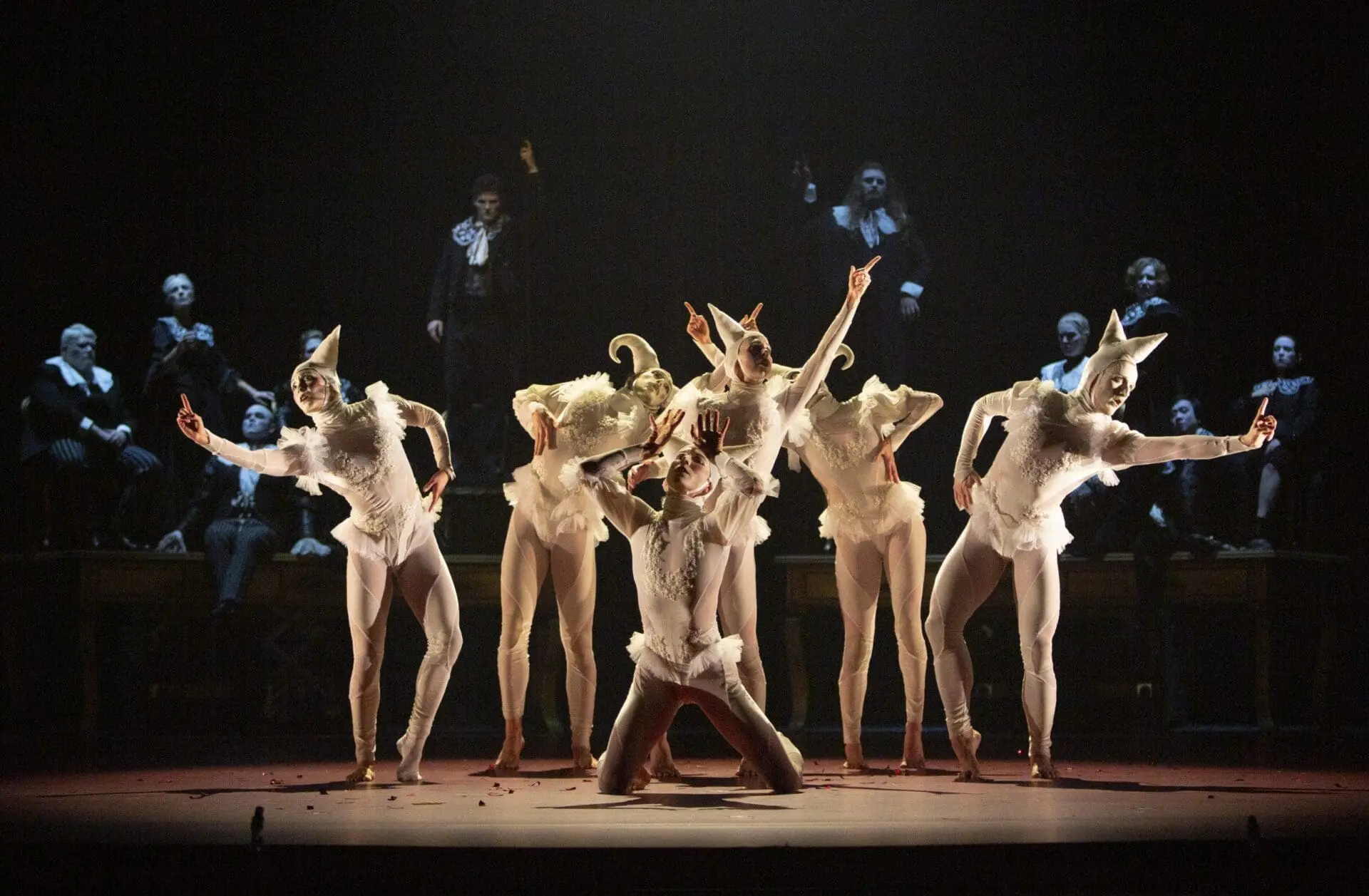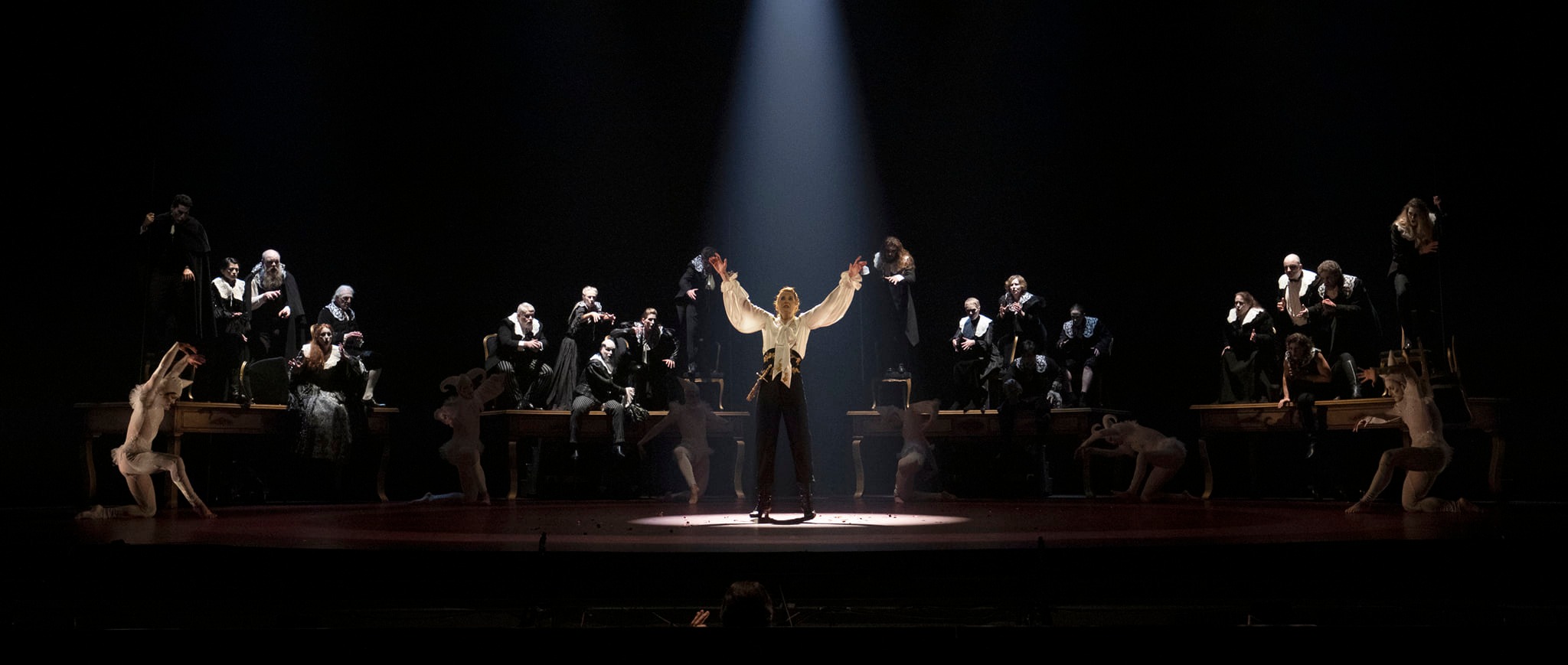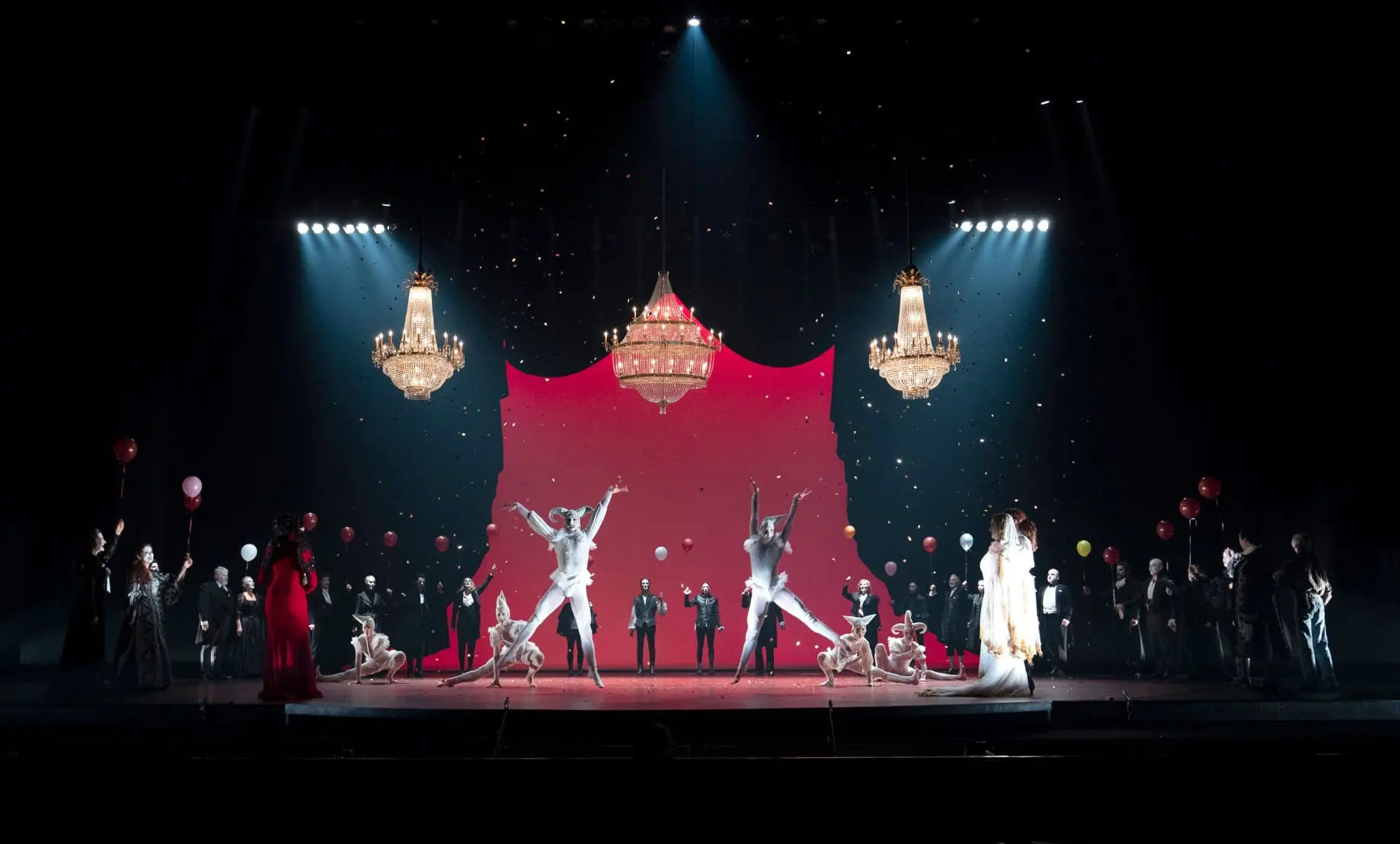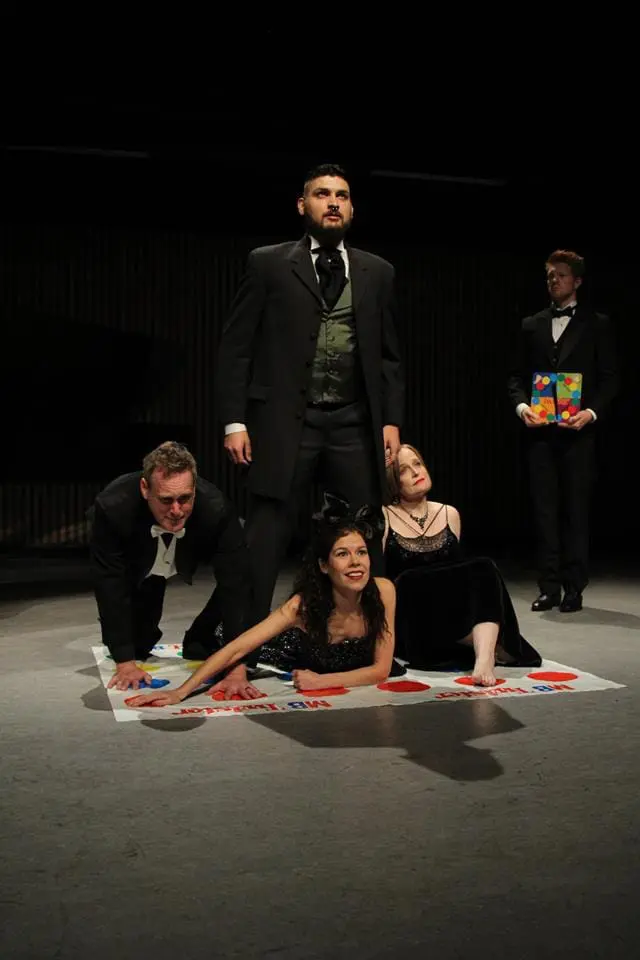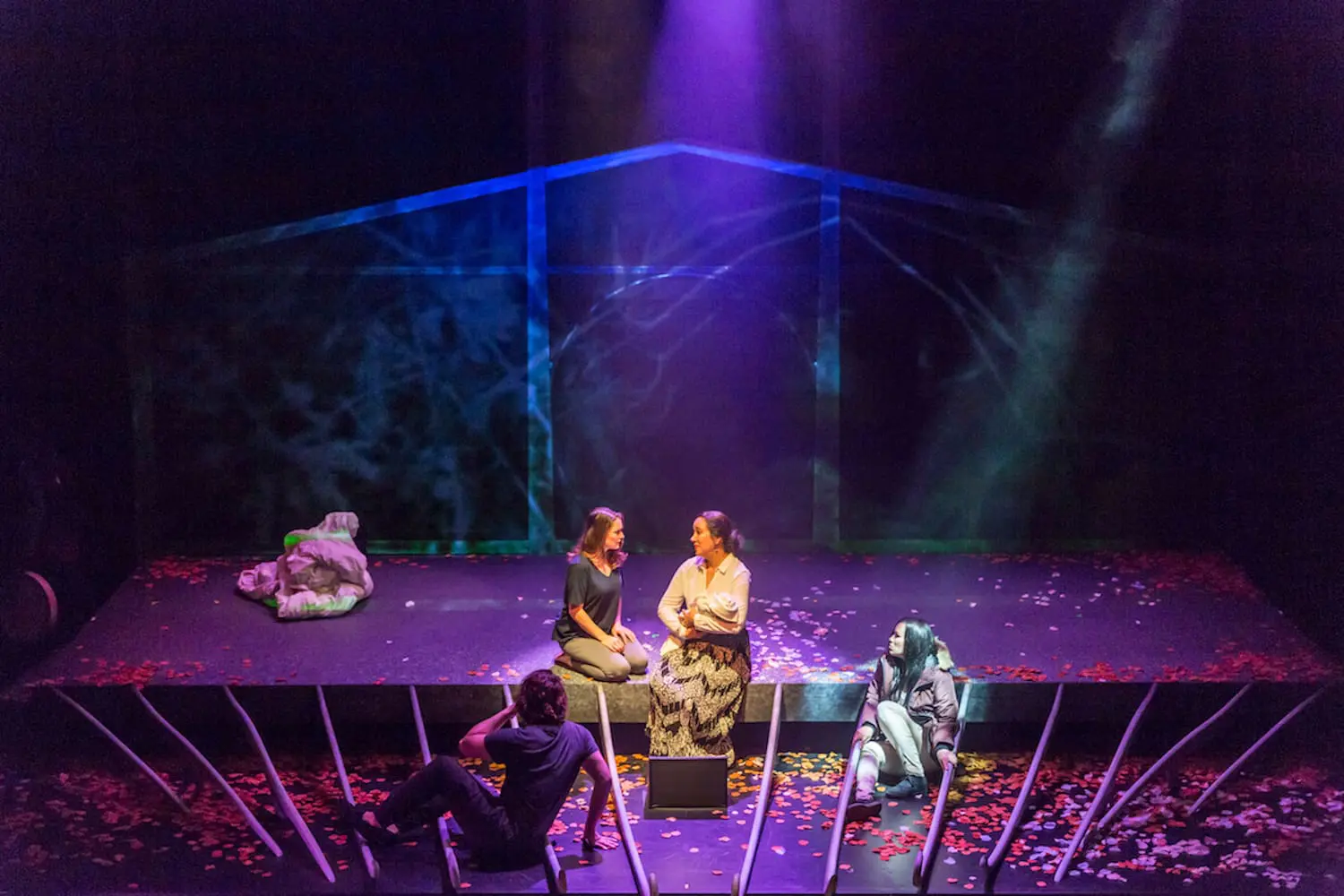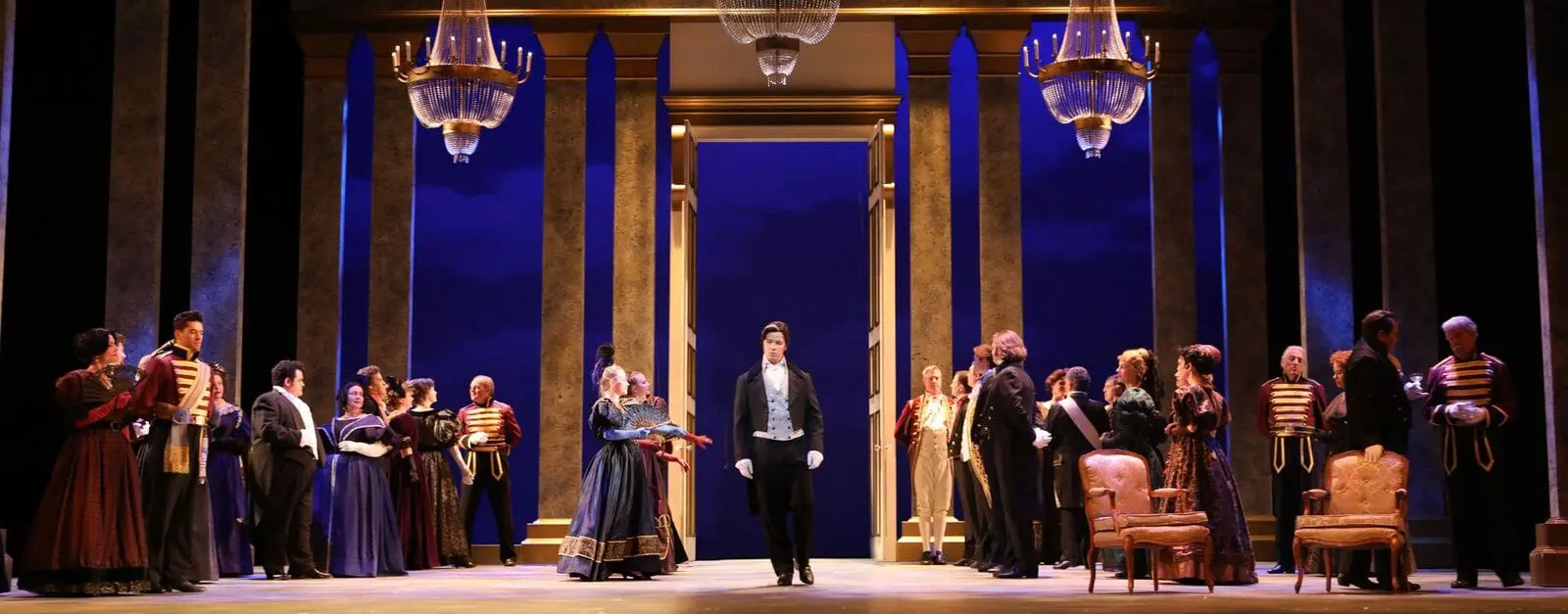The Queen Elizabeth Theatre was packed on December 4 for Vancouver Opera’s first live staging since COVID-19 hit in early 2020. It was the first of only two performances of the company premiere of Christoph Willibald Gluck’s 1762 Orfeo ed Euridice.
An interesting choice for such an occasion: highly influential in the history of opera, Orfeo has barely registered a flicker on the Vancouver operatic popularity charts over the years. An excellent student performance by UBC Opera in 2017 notwithstanding, the only local professional performances I have been able to trace were at the Vancouver International Festival in 1959 and the Modern Baroque Opera Company’s small, intimate staging at the Vancouver East Cultural Centre in 1997.
Could VO’s beguiling production, in partnership with Vancouver’s Ne. Sans Opera & Dance, herald a resurgence of local interest in Gluck’s first big hit? It certainly worked on opening night: during the opera’s long musical interludes – to repeated, enthusiastic applause – the lithe, expressive athleticism of the six superb dancers was not mere eye candy. Dance assumed compelling theatrical significance, riveting attention on the stage, inexorably drawing the audience closer to the intense drama unfolding onstage.

L-R: Mireille Lebel (Orfeo) and Krisztina Szabó (Euridice) in Vancouver Opera’s Orfeo ed Euridice. Photo: Tim Matheson
As Orfeo, mezzo-soprano Mireille Lebel – so compelling in VO’s online La voix humaine a year ago – proved she commands no less a presence on the cavernous QET stage than she did on the intimate small screen for home viewing. With its voice-engulfing acoustics that make voice projection a challenge, the QET stage is a formidable entity to overcome, but Lebel managed it without force or strain. Orfeo gets the lion’s share of the stage time in this opera and Lebel unfailingly maintained the intensity of her character throughout.
Krisztina Szabó does not appear until Act II, when Euridice is one distraught woman. Without resorting to hysterics, Szabó conveyed the complex emotional turmoil that engulfed her character, yet her supple, pliant mezzo-soprano never wavered or slackened in its resolve. Euridice is no weak, helpless woman here, despite her bafflement at the incomprehensible behaviour of Orfeo who, according to the famous myth, can look neither directly at her nor explain why.
Bedecked in a long, brilliant scarlet dress, soprano Mireille Asselin made an indelible statement in the smaller but nonetheless significant role of Amore. From the moment she first appeared, popping a white balloon to release a glittering cloud of red confetti, she commanded attention. And many of the plot’s significant turning points are launched by her words and gestures.
Under the assured helm of Ne. Sans Opera & Dance’s Artistic Director Idan Cohen, Orfeo was sharply etched, cohesive and focused. Cohen (who was also the choreographer for this production) obviously knows how to deploy dancers to maximum expressive effect. If characters stood motionless, there was a reason; when they moved, either together or individually, there was always palpable dramatic focus in what, where and how they moved.
Amir Ofek’s minimal set design included a large red ring on a pitch-black floor, three glittering, moveable chandeliers and almost invisible risers for the chorus, all coming together the create a surreal atmosphere. Evan Clayton’s costume design drew on influences from anime to Star Wars to give an overall air of, well…imagine Federico Fellini directing an episode of Castlevania – TV or video game – and you’re getting close. There was something archetypal in the costume design but there were also elements contemporary enough to resonate with the younger members of a modern, media-savvy audience.
The Vancouver Opera Orchestra was back in truly fine fettle under the deft leadership of VO Associate Conductor Leslie Dala, providing a rock-solid musical underpinning. The orchestra for Orfeo is not large, and the transparent sound emanating from the pit surely had all the elegance that would have greeted the ears of the opera’s first audience at Vienna’s Burgtheater on October 5, 1762.
The Vancouver Opera Chorus (in tandem with the dancers and supernumeraries of Ne. Sans Opera & Dance) were a spirited and motley throng as the opera’s shepherds, nymphs, demons and Furies, providing added texture and vivid colour. The glorious swathes of choral sound were particularly noteworthy.
It was uplifting to see opera live on stage again for the first time since The Barber of Seville in February, 2020 – VO’s last staged performance. The company proved itself admirably enterprising with its online productions during the pandemic. Surely this imaginative staging of Orfeo ed Euridice – so rapturously applauded by the opening night crowd – is a harbinger of similar resourcefulness while VO eases back into – dare we hope – full seasons of live-staged opera?


